- Home
- slideshows
- miscellaneous
- LeBron James might be America's most visible labor activist right now - and he's garnering support from Bernie Sanders
LeBron James might be America's most visible labor activist right now - and he's garnering support from Bernie Sanders
James just tweeted his support for one of the most controversial topics in college sports: paying players.

The NBA star produced a documentary highlighting the financial difficulties college athletes face. The film criticized the NCAA's refusal to pay players for their labor.
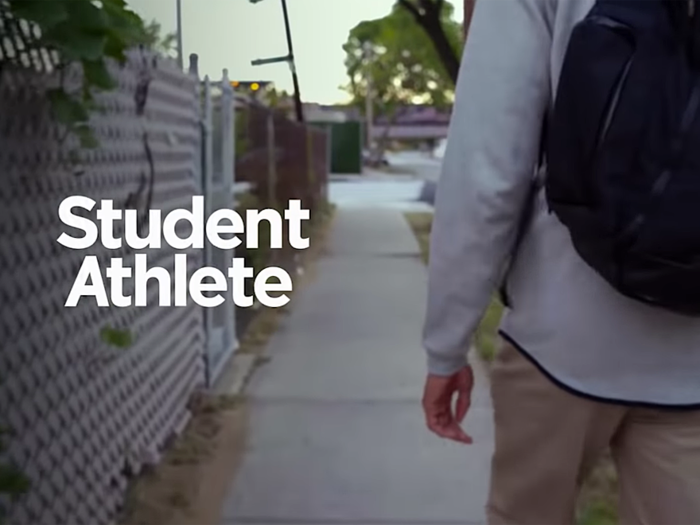
The HBO documentary Student Athlete broadcasts stories from college players struggling to get by without financial compensation from the NCAA. One former Rutgers football player works part-time jobs after graduating and tells filmmakers he sleeps in his car.
The documentary advocates for paying college players for their labor.
"The coaches are making millions of dollars and they're coaching players whose parents live below the poverty line," former college football coach John Shoop — a vocal NCAA critic who got fired from Purdue — said in the film. "If you're a reasonable person, it's insane to build a $150 million recruiting facility, pay your head coach $10 million, the rest of your staff $20 million cumulative, but then say there's not enough money to help the players."
In a tweet, James said he helped start the fight to pay college players with the documentary and he's "just getting started."
We started this fight with our doc “Student Athlete” on HBO. Just getting started! 🙏🏾💪🏾
— LeBron James (@KingJames) September 5, 2019James again clashed with NCAA earlier this summer after he criticized a rule that would prevent non-college graduates from representing players.
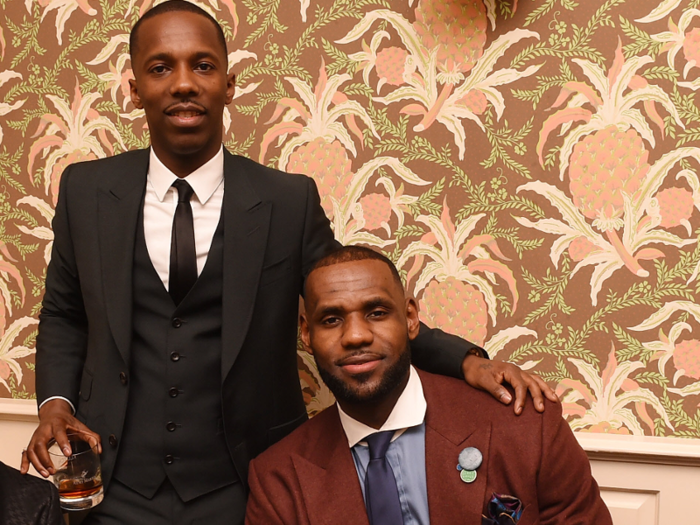
The NCAA released a memo detailing new requirements for agents representing college players, including a mandatory bachelor's degree.
James quickly criticized the rule for discriminating against non-college graduates. He helped dub the controversial requirement the "Rich Paul Rule" after his own agent, Rich Paul of Klutch Sports, who does not have a bachelor's degree.
Six hours after James retweeted Paul's statement against the requirement, the NCAA reversed the decision and no longer required agents to have college degrees.
#StayWokeFolks https://t.co/RPdtHJ0jAo
— LeBron James (@KingJames) August 12, 2019James' advocacy for player empowerment didn't start recently. His decision to form a super team in Miami helped lead to greater player independence during the offseason.
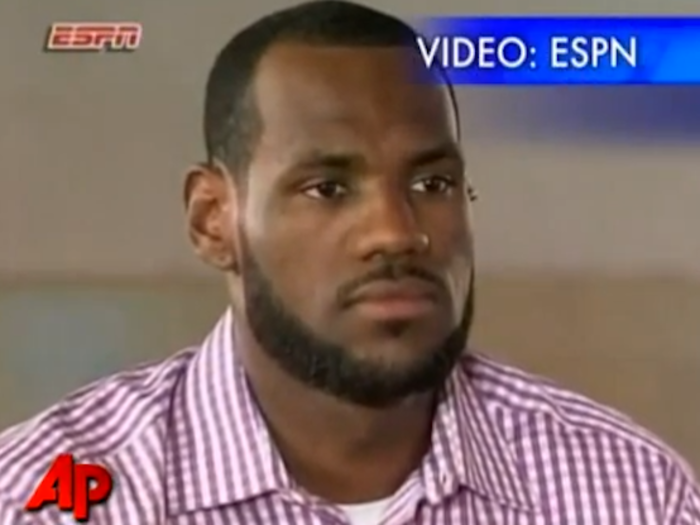
In 2010, James went on TV to announce his "Decision" to take his talents to South Beach via televion special.
A media frenzy soon followed, as pundits criticized how publicly he decided to talk about his decision during the one-hour special. In 2011, Business Insider described him as the most hated man in sports.
"'The Decision' gave the impression that [James] was bigger than the sport, and I think people looked at that and didn't like it," former NBA player and analyst Kenny Smith said.
While players had joined together to form a super-teams in the past, James' move got heat for taking too much control of his narrative.
"The Decision was about power," The Ringer's Bryan Curtis wrote. "It was an early sign the players could seize control of the media."
Now, players "routinely take control of announcing their big career decisions and craft essays to explain themselves," writes ESPN's Brian Windhorst.
James opened the door for players to freely choose where they want to play.
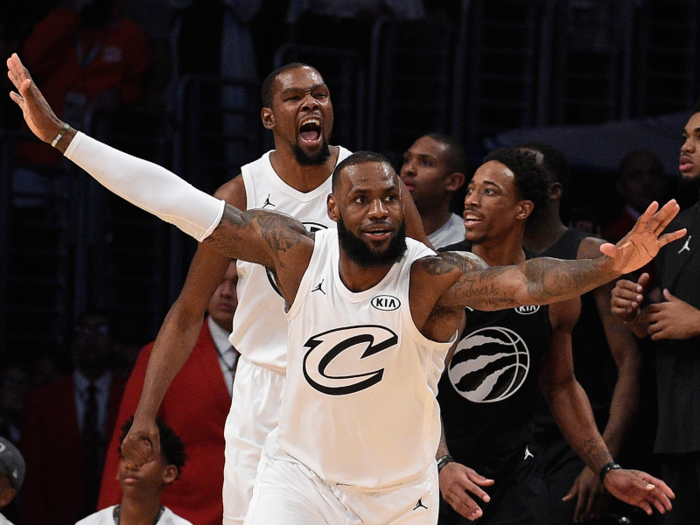
In 2016, fellow MVP Kevin Durant shocked the basketball world by leaving the Oklahoma City Thunder for the Golden State Warriors. His decision also garnered media outcry, though for slightly different reasons — he left to a team that only narrowly beat his Thunder in the 7-game Western Conference Championship.
Durant later said he looked at James' decision to leave Cleveland before he chose to leave OKC. This offseason, free agent players moved teams freely, often opting to team up with friends, like Russell Westbrook's move to James Harden's Houston Rockets — or Durant again moving on to join Kyrie Irving and the Brooklyn Nets.
"He paved the way," Durant told Bleacher Report's Howard Beck of James.
From Kobe Bryant to Michael Jordan, top NBA players that stuck with the teams that drafted them were deemed as "loyal" for their decision — yet NBA executives have never stopped cutting ties with players they no longer have use for.
Now, players can take advantage of the higher salary caps and endorsement deals that come with switching teams. And since NBA success revolves around winning a championship, many players will leave for the teams that guarentee wins.
"The money has made it easier (to leave)," former general manager Billy King told B/R. "Now a guy's going to maybe make $140 million to leave, as opposed to $180 million to stay. It's a lot of money (to sacrifice), but $140 million is big money, too. I think guys don't even look at the money as much anymore when they're making that decision."
And LeBron, of course, has chosen to finish the final act of this career in Hollywood.
James' one-year deals also established that he was in control of where he wants to play, not the organization.
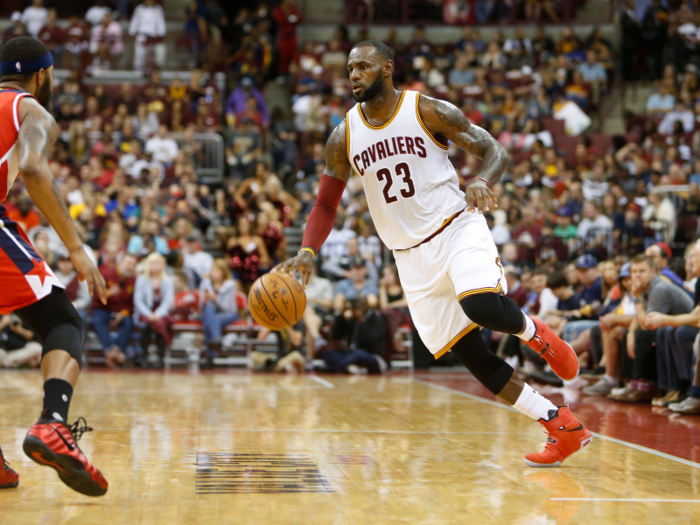
After returning to the Cleveland Cavaliers — an organization whose president called James' move to the Heat a "cowardly betrayal" — the player became the first superstar to ask for one-year deals under the current NBA collective bargaining agreement, according to Cleveland.com.
The decision kept the Cavs on their toes, knowing their franchise player could leave again whenever he wanted. The one-year deals also earned him more money due to increasing salary caps.
While only NBA players with the skill and the visibility to leverage a one-year deal the way James did, he "nevertheless exposed a loophole in the current system, and swayed, however marginally, the balance of power from NBA front offices toward players when it comes to contracts and building rosters," wrote Cleveland.com's Joe Vardon.
This choosing which organization to work for has carried over to other leagues as well, even the NFL, which has much less player-friendly contracts than the NBA. Consider the recent adventures of Antonio Brown, the star wide receiver who bounced from the Pittsburgh Steelers to the Oakland Raiders before finally landing on the perennial contender New England Patriots.
James founded his own media company to give players a platform to advocate for themselves.
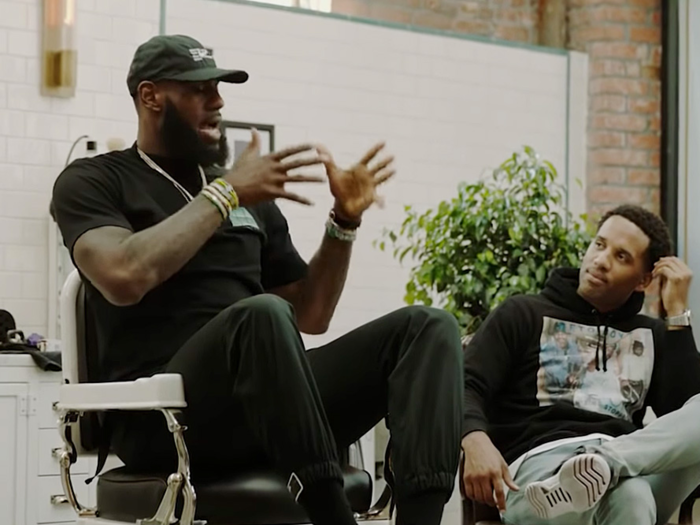
Many of the James' media endeavours center around giving players a voice and letting them speak for themselves.
The Shop, an HBO series created by James, features the superstar talking candidly with athletes and celebrities at a barber shop — one recent episode featured comedian Kevin Hart, tight end Rob Gronkowski, viral rap star Lil Nas X, and James's former teammate Kevin Love.
Uninterrupted, too, gives athletes a platform to express themselves. The platform, in partnership with Bleacher Report, lets athletes post videos speaking on whatever topics they'd like.
"I wanted athletes to feel like they had power, they had the platform to speak about whatever they wanted to speak about," James said of the platform to The Undefeated's Jerry Bembry, "and not have it cut, diced and split into soundbites where people could use it to how they wanted to use it."
Popular Right Now
Popular Keywords
Advertisement